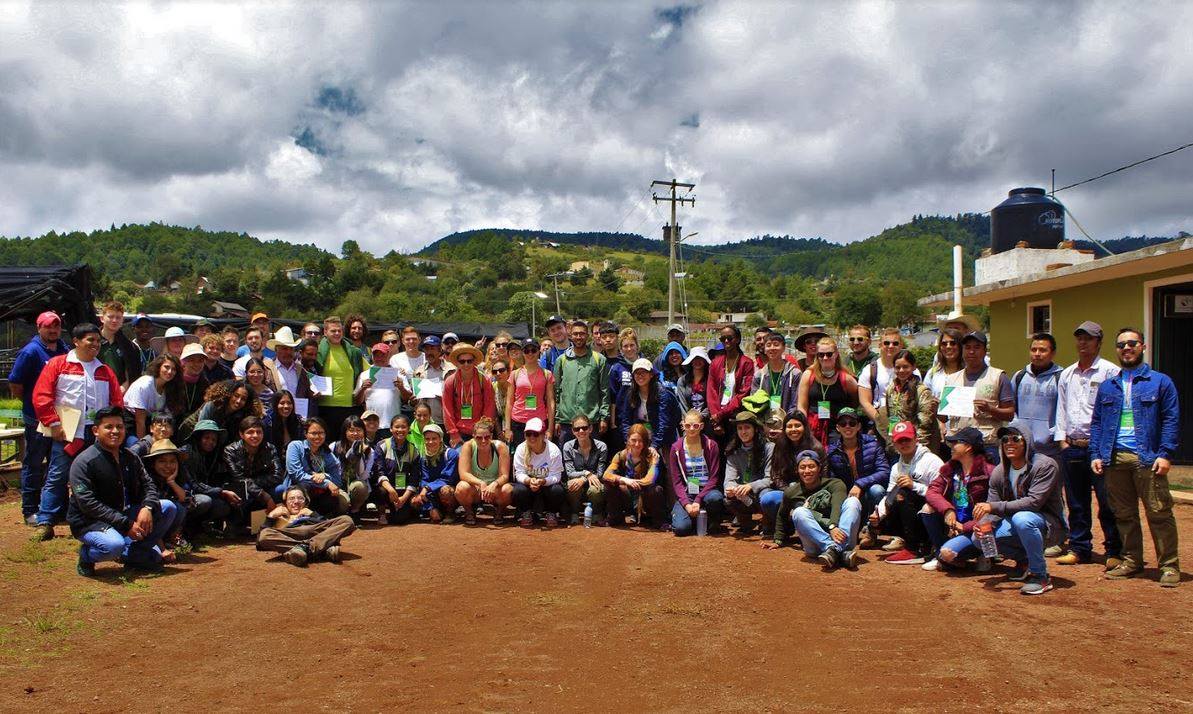Recently, myself and fellow student Karen Khoo represented ANU Fenner School at the 46th annual International Forestry Students Symposium held in Mexico. The symposium is the most important event of the year for International Forestry Students’ Association (IFSA). It allows the various members from different local committees to gather together.
The symposium is important because it allows students to determine the future directions of the organisation and to exchange knowledge, perspectives and cultures. We learnt so much in the span of two weeks. The weeks were filled with intense discussions, debates and plenary sessions.
One of the greatest things we gained from the experience was the Mexican perspectives on the environment. Students from the Universidad Autónoma Chapingo ran the symposium and taught us all about the Mexican perspective.
We were shown Ejidos, land shared and managed by the community. In Mexico, communal land management makes up 70 per cent of land use. Local people are highly dependent on forest resources, as well as livestock farming, which takes up 50 per cent of land use. Of the people who live on Ejidos, 50 per cent fell below the national poverty baseline.
During the symposium there were many insightful talks given by experts in environmental science. One of these was Dr. José Sergio Barrales Domínguez from the University Chapingo who said, “You as a youth within the system are one of the alternative sources of knowledge for the country, and forces in demanding change in traditional practices.”
The speeches were very inspiring and heartlifting for me as a student. It gave us hope that we have the power to change things that we are passionate about, especially the environment and forests.
There were many discussions prompted during local forestry visitation. One of the key debates was the use of forestry in water conservation. As a forester, we were taught forestry benefits water conservation. However, South African representatives thought differently. They have strict legislation in South Africa that regulates forestry operations in catchment areas.
In addition, we also learnt that within a community, the members usually have great connections and trust in different individual members of the community. They undertake decision-making democratically and with transparency through general assembly with the presence of community members.
In Mexico, we also found that land managers were resisting modern technology to ensure employment opportunities and livelihoods for their local people. Consequently, this phenomenon prompted a deep discussion between representatives during reflection session of the closing ceremony. How do we ensure diverse livelihood options for local people while increasing efficiency in production through modern machineries use?
Many representatives provided their perspectives on the various issues raised. For us, the main take-away regarding forestry management in Mexico was that forestry and land management in Mexico isn’t solely about providing economic development, income or employment; it is about long inherited cultural and historical values with social aspects, relationships between members of the community, passion in sharing and great hospitality. This is an important facet of management that all land managers need to consider. I think IUFRO representative Dr. Sandra Rodríguez summed it up best: “Forests of the world needs to be conserved as well as the contributions to sustainable development through generating wealth, providing livelihood, and protecting social and environmental values”. By attending the symposium I have gained an invaluable global perspective on environmental management that I can now apply back in an Australian context.
We acknowledge the Ngunnawal and Ngambri people, who are the Traditional Custodians of the land on which Woroni, Woroni Radio and Woroni TV are created, edited, published, printed and distributed. We pay our respects to Elders past and present. We acknowledge that the name Woroni was taken from the Wadi Wadi Nation without permission, and we are striving to do better for future reconciliation.
